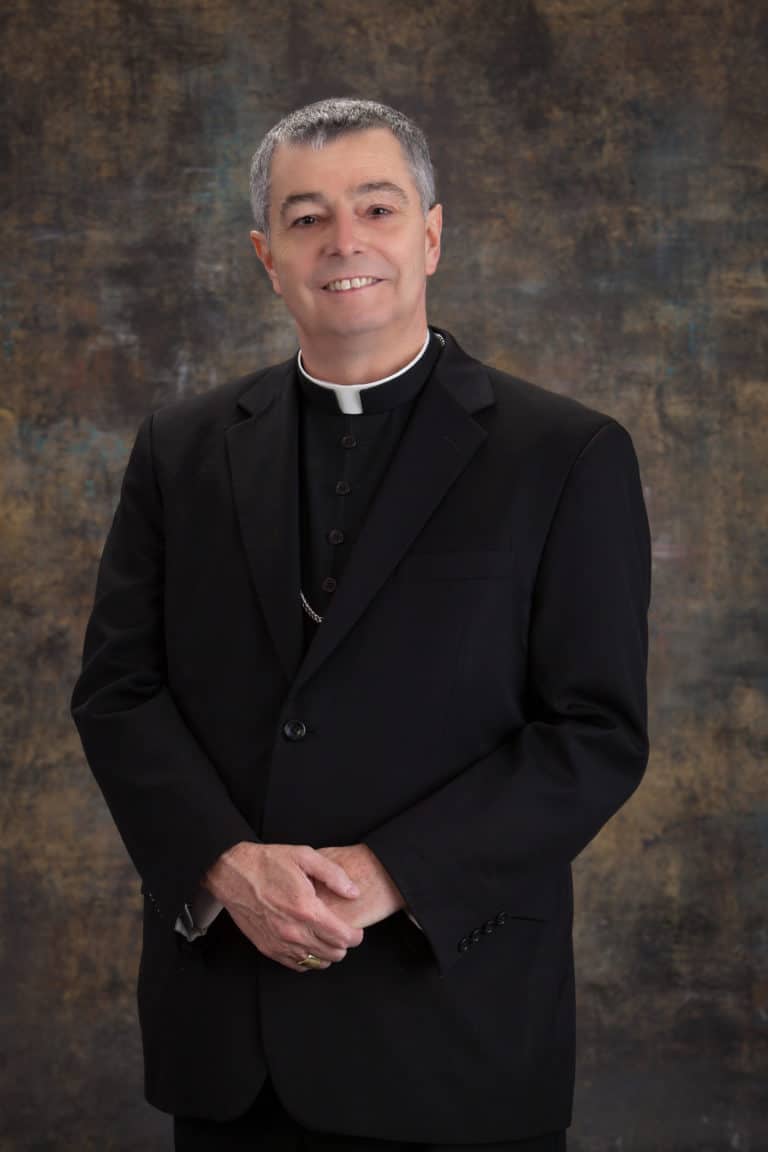A Word from Bishop Medley
My dear people of God,
When people of faith gather, it is most common that someone propose that we pray together. This may be a priest or minister in the setting of an assembly, it may be a teacher in a classroom, it may be a parent or grandparent in the family, the domestic church. By strength of tradition, we may invoke the words of Jesus when his disciples asked him to teach them to pray, “Our Father, who art in heaven…”
Just as readily, Catholics may spontaneously pray, “Hail Mary, full of grace, the Lord is with you…” This prayer comes from the greeting of Elizabeth in Luke’s Gospel when she encountered her cousin, Mary. Elizabeth was almost ready to deliver her son, John the Baptist, when the young Mary came to visit soon after the angel Gabriel had announced to her that she would give birth to Jesus.
Quite traditionally, we bring these prayers together in a mantra of repetition when we pray the rosary and strive to reflect upon mysteries from the Gospel life of Jesus. At other times and moments in life, we may spontaneously pray other traditional prayers, such as “Angel of God, my guardian dear, to whom God’s love commits me here …”, or “Now I lay me down to sleep…” We pause when we eat to say, “Bless us, O Lord, and these thy gifts…” These are noble and rich prayers that often ground us in moments that it seems proper to pray. It is good that we know these memorized and rehearsed prayers for, otherwise, there may be times that we would be unable to speak to God, the Blessed Mother, or the saints.
A classical definition of prayer suggests that “prayer is lifting mind and heart to God.” As beautiful and comforting as our traditional prayers can be, the words of these well-known prayers may not in every moment reflect our minds and hearts. Too often, Catholics do not feel capable of spontaneous prayer, simply pouring out our innermost thoughts and feelings to God. In fact, sometimes we may be uncomfortable when others pray in words unfamiliar to us.
In this year, one in which our diocese has undertaken an intentional journey of Missionary Discipleship, we have striven to be more deliberate in prayerful encounter with our God. If we are slow to voice our own prayers, perhaps we need training. For this we might look to the Book of Psalms as a “school of prayer.”
The Book of Psalms are a collection of 150 ancient prayers and songs that cover a wide variation of emotions and can, perhaps, stimulate our own minds and hearts. Most of the Psalms are quite short. One can open the Bible and pray several Psalms in the time it might take to read a single chapter from one of the Gospels. No matter what mood one feels or the message one might want to relate to God, one will find a sympathetic Psalm.
There are Psalms of thanksgiving and praise that may mirror our best day’s thoughts. Not surprisingly, there are more Psalms of lamentation than any other type. How human. How very human. These will generally begin with a cry for help and can conclude with a confidence that God has heard our prayer. That’s not to say that the prayer has been answered, but it also very human to find comfort just in the fact that someone has listened to and heard us. Psalms permit us to voice angry and vengeful feelings toward God. They may allow us to privately confess our inadequacies, to plead for mercy, to soften our hearts, to wash us clean, and give us a new start.
The Psalms reassure us that God is not afraid of our anger and bitterness, but, like a loving parent, only wants for us to come and talk about it. I recall a talk given on a retreat many years ago where we discussed the pious practice of folding our hands devoutly as a gesture of prayer. This is a universal sign of prayer. But our retreat master reminded us that a clenched fist shaken toward the heavens may also be a gesture of prayer when we trust that God will receive our emotions, our weakness, even our tantrums.
How to pray? Lift hearts and minds to God. If we need a few lessons, open up the book of Psalms.
Most Reverend William F. Medley
Diocese of Owensboro
Copyright © 2018 Diocese of Owensboro/The Western Kentucky Catholic


